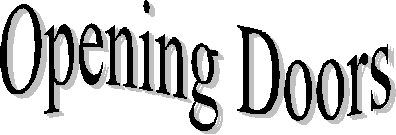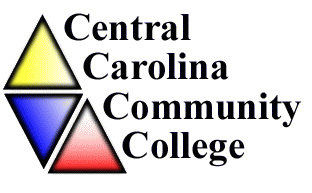

 |
 |
|
Transitions Conference
Chapel Hill, NC Branch
April 20, 2002
In the fall of 2000, the Board of the Chapel Hill, NC Branchof the American Association of University Women decided to explore the idea of a Transitions conference for women seeking to make a change in their lives through additional education.
In this area of North Carolina, the Latino population is increasing rapidly, and we learned that Latinas now comprise the largest "minority" group of young women in the continental United States. With these facts in mind, the Board proposed that the conference be directed primarily, but not exclusively, toward adult Hispanic women who wished to begin classes to gain a degree or licensing.
Work on the project began in January, 2001, and the Board presented the proposal to the general membership on March 1, 2001. The membership had been eager to do a local project and approved the proposal. At the same time, they agreed to turn over $1371.00 to the committee for seed money, with the understanding that other monies would be raised by the committee. The conference was called "Opening Doors."
Central Carolina Community College in Pittsboro, NC, agreed to be the site for the program, and to provide some of the instructors, insurance coverage for the day, a daycare site, and custodial help. This site was chosen for its variety of course offerings, as well as for its location in the part of the county where many Latino families have settled. Together with the college instructors, we decided on courses to discuss at the conference. We emphasized courses which offered licensing, diploma, or associate degree opportunities. Topics included health care careers, computer information systems, early childhood education, and bioprocess manufacturing technology. The latter is a newly emerging field in lab work with pharmaceutical, agricultural, or environmental firms, and North Carolina is the leading state in this area. Other topics to be presented were admissions, financial aid, GED testing, and English as a second language. Presenters were chosen from college faculty and administration, and also from the Educational Opportunity Center at Piedmont Community College.
By June, chairs were in place for the following committees: Fund-raising, Speakers and Program, Printing and Distribution, Finance, Childcare, Food, Registration, Packet, and Publicity. We began by writing a brief mission statement to help us clarify our goals, and job descriptions for each committee chair were written. In addition, a timeline for the work was drawn up and distributed to all the committee members.
The chair of Finance opened a bank account exclusively for the Transitions Conference and the money donated by the branch was placed in that account. She devised a check request form to be used when any committee member sought reimbursement, and the form had to be signed by one of the co-chairs. Any monies brought in by fund-raising efforts also went into that account, and all funds paid out came from there. Keeping the money separate from the Branch account was felt to be essential for clarity.
Our estimated budget was $2571, with $1371 of that amount being the seed money. As we were not a 501-C-3 part of AAUW, we found it difficult to raise money from corporations, but committee members contacted individuals, banks, restaurants, and were able to raise additional funds by dint of perseverance. The food chairperson made up tickets to be sold at Branch meetings and to friends. The tickets were called "Be a Star" and were sold for $5.00 apiece to cover the cost of lunch for one attendee. The person buying the ticket did not attend the conference, but in effect, hosted lunch for one person for each ticket. This proved to be a very successful fund-raiser, and brought in $280.
Certain problems in planning presented themselves, in addition to the problem of fund-raising. Many of the people to whom we spoke mentioned that our target audience would have difficulty with transportation. After much discussion and investigation, the committee agreed that we could not offer transportation. Our budget was too limited to allow for bus rental and insurance charges. We learned, also, that the county in which the college was located had public transportation for only $1.00. Probably more people would have attended if we could have arranged free transportation, but our budget made such an arrangement impossible, as well as the wide area from which we would draw.
Publicity began in January, 2002, with letters sent to churches in three counties, along with a flyer to be posted in the churches. Flyers were made up in lightweight stock for mailing and heavyweight stock for posting purposes. In early March, articles appeared in newspapers in three counties, and public service announcements appeared on local radio stations. Flyers were posted about that time, and flyers and registration forms were distributed by committee members to churches, Hispanic centers, schools, Head Start centers, Work Force centers, etc. The committee made up a question and answer form (in both English and Spanish) to distribute to many of these centers, hoping to answer most of their questions by the use of these forms.
After some difficulty in locating appropriate places willing to help, day care for the children of the attendees was arranged at the college daycare center and at a center in Chapel Hill. Lunch was brought to these centers on the day of the conference for both children and child care workers. The workers were certified child care providers, and one of the centers (Mi Escuelita in Chapel Hill) required that permission slips be signed and returned by the parents. Workers were paid by the hour. Some of the Branch members served as volunteers at the college center.
As registration forms began arriving, the registration chair entered their information on one of three spread sheets - one for those who were not bringing children, one for those with children going to daycare at the college, and one for those with children going to daycare in Chapel Hill. A packet was made up for each attendee with his or her name on the front, along with a notation on the front of the classes they would be attending, in which room, and at what time. The morning classes were given twice each, and the afternoon sessions on admissions and financial aid were given once each. Also contained in each packet was information about the college along with a folder from the college with a detailed map of the three campuses. We provided a note pad, ballpoint pen, the program of the day’s events, information on English as a Second Language classes and their locations, GED information, Literacy Council information, and a ticket for the drawings for door prizes and scholarships which we had gathered for the day.
On the day of the conference, the food committee arrived early to set up coffee and snacks for all, and to begin preparations for lunch. We had 28 attendees, including eight men. Attendees were given mugs and pencils, as well as their packets. Dr. Karen Allen, Provost of the college, and Sydney Elstran, president of the Branch, offered brief welcomes. The Reverend Maria Palmer, pastor of La Iglesia Unida de Cristo in Chapel Hill. gave the keynote speech.. Maria Palmer was an immigrant from Guatemala when she was eighteen years old, and is now a doctoral student at UNC-Chapel Hill. She spoke in both English and Spanish and did some translation during the other sessions. She inspired the students to go on for further education and to take advantage of their opportunities.
Following the speech, the students went on to their classes, then had a break to examine information from other community colleges which had been placed on a table in the room. After the break everyone gathered for a delicious lunch prepared and served by the food committee.
Lunch was followed by financial aid information, delivered by the Henry Puryear, Outreach Counselor at the Educational Opportunity Center at Piedmont Community College. Following this talk and the questions and answer period, Luther Lott, admissions counselor at the college, talked about admissions and the GED exam.
The group assembled once again to hear the wrap-up speaker, Professor Cheryl Amana. Professor Amana was a mother of four at the age of 21, and is now one of the deans of the law school at North Carolina Central University in Durham, NC, and is the recipient of many national awards. She teaches Family Law and Bioethics at NC Central, and is the co-founder of the Center for Child and Family Health - North Carolina. She is also the co-founder of a support program for young single parents. She inspired the students to feel that they could achieve no matter how difficult the odds, and she was very direct in telling them of her own mistakes and how she set about correcting the course of her life
Following her speech, a drawing was held for numerous door prizes and for the two scholarships of $250 each. One was donated entirely by AAUW, and the other was donated by the college and AAUW together. The two winners were so happy to have won, and we were told by the admissions director that several of the students were asking him about signing up for classes before they left the conference. We are arranging for mentors for those who requested them on the form.
Evaluation forms indicated that the students had thoroughly enjoyed the conference, and all but one said they had gained a great deal from the day. That person did not like the Spanish translations. The college representatives and instructors were universally pleased with the day, and the provost of the college wrote an email to congratulate the branch on such a successful day, and to express her wish that the Chapel Hill Branch would consider doing such a program every year.
The committee was happy with the success of the day, and would like to see it continue, as well. The conference requires a great deal of work, but the first year, of course, is the most difficult. Many of the procedures would be in place already if the conference were repeated. We would urge anyone considering doing this type of conference to try to get a grant and to try to arrange for the conference to be placed under one of the 501-C-3 parts of AAUW - possibly EF. Total cost of the conference was $2281.05.We all felt that we learned and profited from the conference as much as the attendees.
.
|
Saturday,
April 20, 2002
8:30 a.m. - 3:00 p.m. at Central Carolina Community College |
Last updated:
24-Jul-2002
Back to AAUW Chapel Hill